Orthodontic treatment offers comprehensive solutions to a multitude of dental issues that extend beyond mere cosmetic concerns. With a range of orthodontic appliances at their disposal, including braces, aligners, and retainers, orthodontists like drName at practiceName in Salt Lake City can effectively address misaligned teeth and jaws, enhance bite function, and ultimately create a smile that is both aesthetically pleasing and healthy. Below are some of the common problems that can be successfully treated with orthodontics:
Crowding
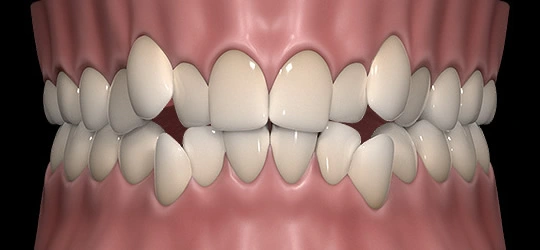
One of the most obvious reasons patients are unhappy with their smiles is teeth that don’t have enough room to grow in and become crowded within their smile. This problem not only can look unappealing, it can cause oral health issues. Teeth that are too close together can be hard to clean completely due to their overlapping tooth surfaces.
Spacing
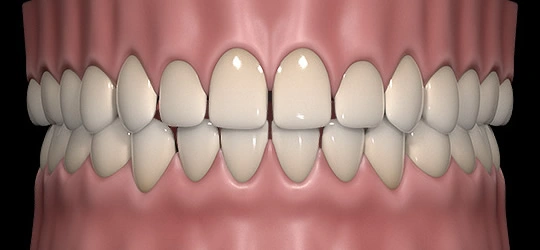
The opposite problem to crowding is teeth that are spaced too far apart. There is too much room in the jaw for teeth that are coming in, which can result from missing teeth or could just be a cosmetic problem.
Upper Front Teeth Protrusion
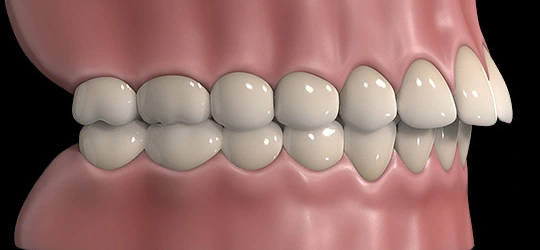
Sometimes the upper front teeth stick out farther than they should. This can be an embarrassing look, plus can make it more difficult for your teeth to function normally. This happens when the upper front teeth stick out too far forward, or the lower front teeth sit further back than they should.
Overbite
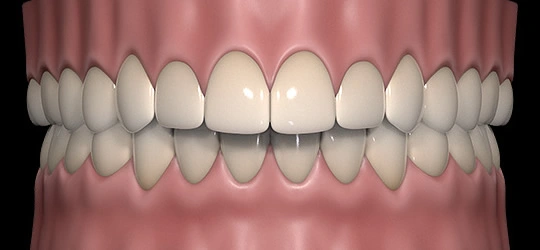
In situations where the upper front teeth overlap excessively over the lower front teeth, the result is called an overbite. Severe overbites can cause the lower teeth to bite into the roof of the mouth, making it very uncomfortable. Overbites can also lead to lips that stick out too far, gummy smiles, or too much wear on incisor teeth.
Underbite
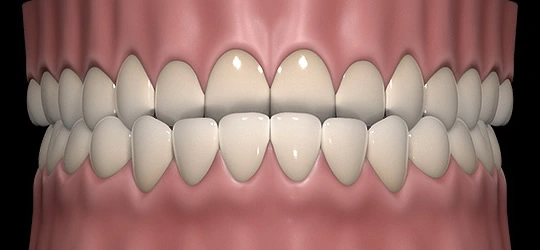
When the lower jaw sticks further out than it should, it’s called an underbite. The result is lower front teeth that awkwardly sit in front of the upper front teeth.
Crossbite
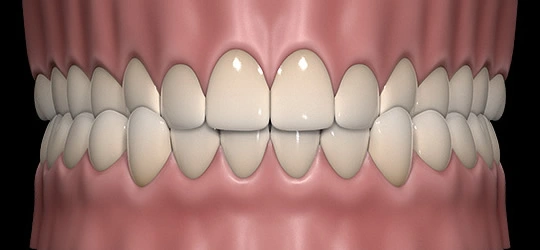
Another problem that drName sees frequently is a crossbite. When the jaw is closed, the upper teeth rest inside the lower teeth. Various problems are linked to crossbites, including incorrect use of the lower jaw, improper jaw growth, teeth that tip over inappropriately, or the two sides of a person’s face not looking equivalent to one another.
Openbite
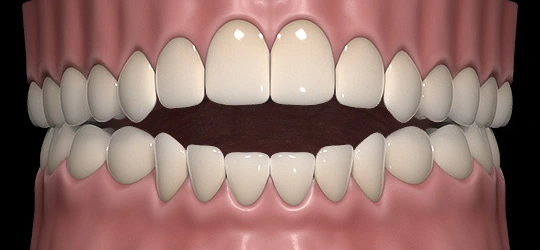
If the lower and upper front teeth don’t overlap at all, an openbite is created. This can be caused by undesirable habits like tongue thrusting or thumb sucking.
Unmatched Dental Midlines
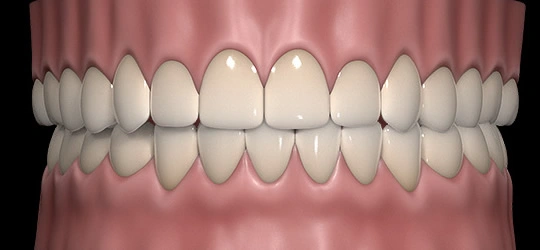
When the back portion of the bite doesn’t fit together or match correctly, it’s referred to as unmatched dental midlines. The teeth and jaw may not function as they should when this occurs.
Start The Process today
If you suspect you have any of these common orthodontic problems, call practiceName today to schedule an appointment. You don’t have to go through life with issues like these; help is on the way through braces, aligners, or other orthodontic treatments.
ADDITIONAL FREQUENTLY ASKED QUESTIONS ABOUT Common Ortho Problems
Can orthodontics help with TMJ (temporomandibular joint) issues?
Yes, orthodontic treatment can be beneficial in addressing TMJ issues. By properly aligning the teeth and jaws, orthodontics can help alleviate symptoms such as jaw pain, clicking, or difficulty in jaw movement associated with TMJ disorders.
Is orthodontic treatment suitable for adults, or is it primarily for children and teenagers?
Orthodontic treatment is not limited to children and teenagers. It is suitable for adults as well. With advancements in orthodontic technology, adults can also benefit from braces, aligners, and other orthodontic treatments to correct dental issues and achieve a healthier, more attractive smile.
Can orthodontics improve speech problems caused by dental misalignments?
Yes, dental misalignments can sometimes affect speech clarity. Orthodontic treatment can help correct these misalignments, leading to improved speech and pronunciation.
Will orthodontic treatment require extractions of teeth?
Extractions of teeth are not always necessary for orthodontic treatment. However, in some cases of severe crowding or jaw discrepancies, extractions may be recommended to create the necessary space for proper alignment and bite correction.
How long does orthodontic treatment typically last?
The duration of orthodontic treatment varies depending on the complexity of the case and the specific treatment plan. On average, treatment can range from one to three years. Regular progress check-ups with the orthodontist will help ensure that the treatment progresses as planned and adjustments are made accordingly.
Is orthodontic treatment covered by insurance?
Orthodontic coverage varies depending on the insurance plan. Some dental insurance plans offer orthodontic benefits, either partially or fully. It’s advisable to check with your insurance provider to determine the extent of coverage for orthodontic treatment.
Can I continue playing sports or musical instruments while undergoing orthodontic treatment?
Yes, you can continue playing sports and musical instruments during orthodontic treatment. It is important to wear a mouthguard while engaging in sports to protect your braces or aligners. In the case of playing musical instruments, there may be an adjustment period, but most individuals adapt and continue to play comfortably.
Is there an orthodontist near me in Salt Lake City that offers orthodontic treatment for common ortho problems?
Yes. At our Salt Lake City orthodontic office we offer orthodontic treatment for commen dental problems to patients from Salt Lake City and the surrounding area. Contact our office today to schedule an appointment.
Helpful Related Links
- American Dental Association (ADA). Glossary of Dental Terms.
- WebMD. What is an orthodontist
